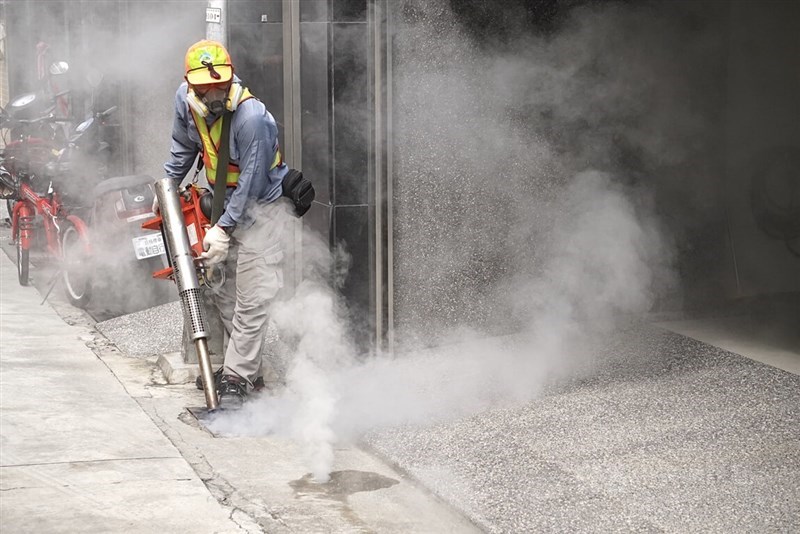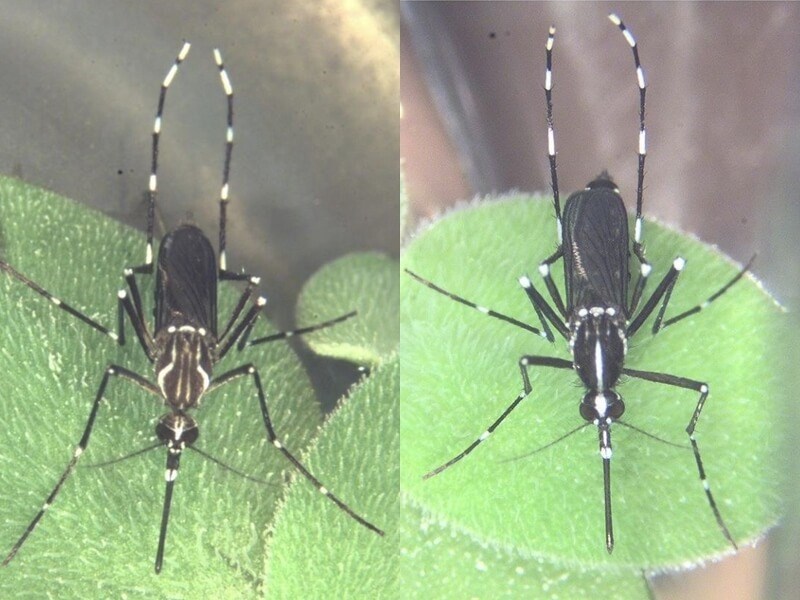
Taipei, May 9 (CNA) A National Health Research Institute analysis into the distribution of vector mosquitoes that transmit dengue virus has found that while the spread of the Aedes albopictus has expanded to 1,500 meters above sea level, that of the Aedes aegypti has remained unchanged.
Huang Chin-gi (黃旌集), the researcher and director of the project from the National Mosquito-Borne Diseases Control Research Center told CNA Thursday that the Aedes albopictus had been found in areas south of Budai Township in Chiayi County, which was consistent with past findings.
In 2022, two Aedes aegypti mosquitoes were caught further north -- one in Yunlin County's Beigang Township and one in New Taipei's Banqiao Train Station. In 2023, one was found in Chiayi County's Jhongpu Township and one in Taichung's Xinwuri Station.
Huang said that subsequent traces of the mosquitoes had not been found in those areas, which suggests they were isolated cases of mosquitoes traveling north, potentially in vehicles, and were unable to survive or breed.
While isolated discoveries of the Aedes albopictus were made at 1,700m from 2009-2011, most mosquitoes were found at altitudes under 1,500m. However, recent discoveries suggest their distribution has expanded to include higher altitudes, Huang said.

Because fewer people now live in mountainous regions, the expansion is not expected to significantly increase the risk of dengue fever, Huang added.
The Ministry of Environment commissioned the research to investigate how climate change could impact the risk of disease.
The research suggests that with a 1.5-degree Celsius temperature increase, the northernmost point where mosquitoes are present could shift from Budai Township to Taichung's Taiping District in the west and Hualien County's Juisui Township in the east.
With a 2-degree Celsius temperature increase, the boundary where mosquitoes are present could shift to Taichung's Beitun District in the west and Hualien City in the east.
If temperatures rise by 2.5 degrees, the boundary could extend to Taichung's Tanzi District, according to the study.
Huang noted that besides containers like vases and buckets, 34.4% of tires were found to be breeding sites for mosquitoes.
He reminded people to drill holes into waste tires if they intend to reuse them to prevent them from becoming breeding grounds for mosquitoes.
Huang added that vector mosquito eggs can survive in dry environments for up to six months and hatch when it rains again.
- Business
U.S. dollar closes higher on Taipei forex market
05/20/2024 04:28 PM - Cross-Strait
- Politics
Lai plans to establish new physical education, sports ministry
05/20/2024 04:02 PM - Politics
U.S., Japan congratulate Lai on his inauguration as president
05/20/2024 03:29 PM - Culture
Taiwanese work receives Japan's best translation award
05/20/2024 03:14 PM
